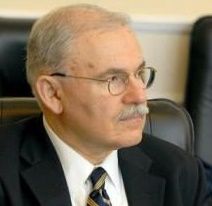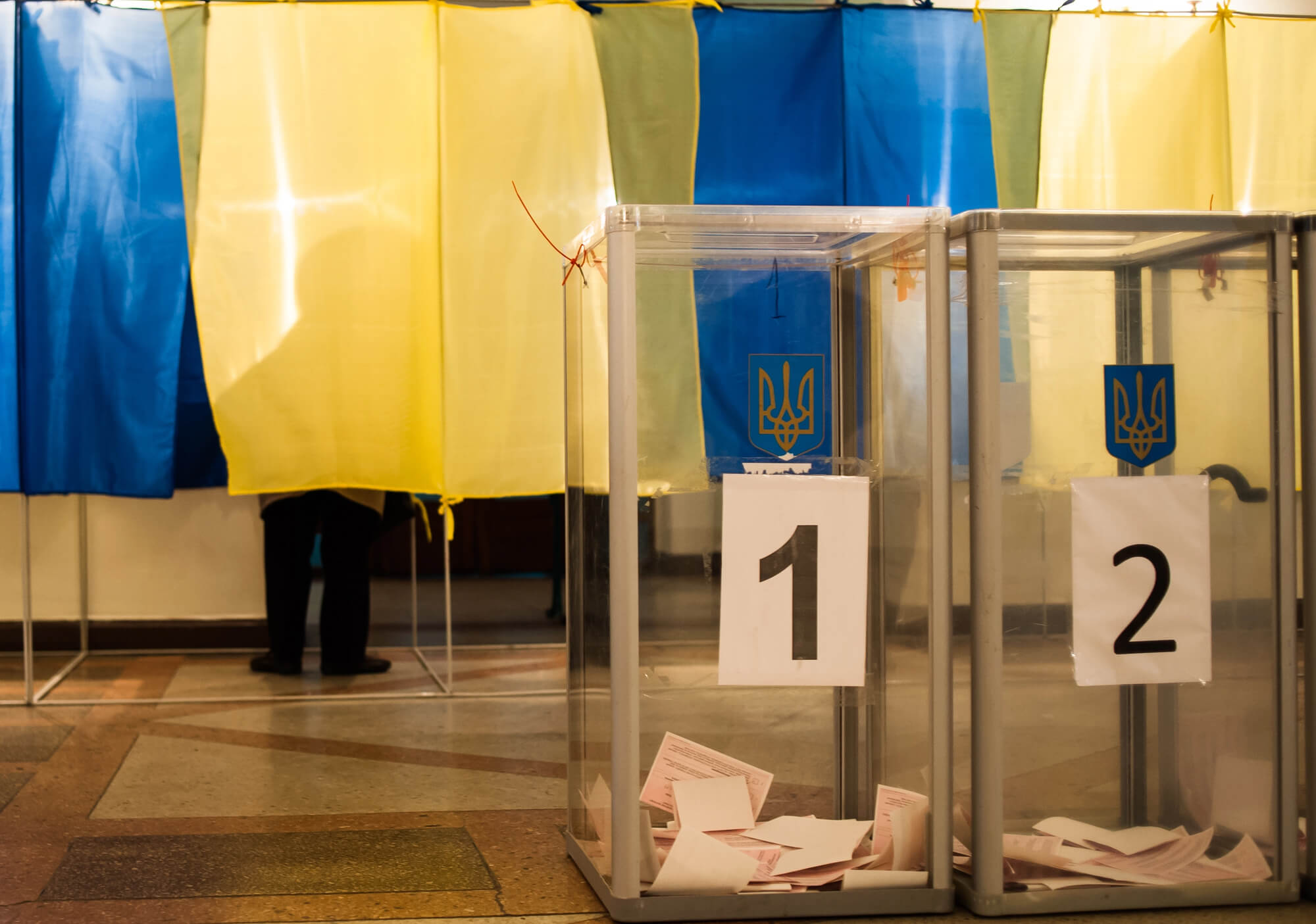It is difficult to build social trust with such a legacy of deformities. But as with any other pathology, the first step requires publicly identifying the problem, grasping its historical roots, and then explicitly rejecting the past and honestly committing to a future. Thankfully, Ukraine is no longer isolated. Now comes the hard part: challenging moral degradation, challenging and rejecting virtuality, and rebuilding almost from scratch the Ukrainian legal system.
Sviatoslav Vakarchuk, Ukraine’s true Renaissance man, has recently delivered a series of talks at American Universities, and videos of his presentations at Columbia and Harvard, respectively, have been posted on this site (1, 2).
I hope that he will deliver similar presentations before Ukrainian audiences when he returns home from his fellowship at Yale. They are both interesting and valuable insofar as they tackle so-called big picture issues as these relate to what ails Ukraine and what needs to happen to move the country towards greater prosperity and normalcy. He also offers a series of specific recommendations relating to decentralization, an approach to Ukraine’s oligarchs, the need to reduce political control over television and others, many of which, with the important exceptions addressed below, are well taken.
In Vakarchuk’s view, and following the Western literature that has emphasized the important role of social trust in developing mature political and economic systems, Ukraine’s greatest deficit is neither its past nor some defect in its people’s mentality but rather a lack of trust—in its leaders, in each other and in themselves. Actually, this analysis confuses causes with effects insofar as it is precisely the Russo-Soviet past that had been imposed upon Ukraine and the mentality produced in response to and as a result of that past that has both undermined the creation of social trust and has profoundly deformed Ukraine in numerous other respects. And failure to confront that past and the mentality it engendered only ensures ongoing deformation.
To avoid any confusion, by “mentality” I mean the internalized assumptions and beliefs about what is understood to be “normal” behavior or what constitute normal social, political and economic relations and conditions and, therefore, what is presumed acceptable and/or desirable and/or healthy.
Ukraine’s Russo-Soviet past has deformed it in innumerable ways. But perhaps four of the most important are the lingering impact of informational and physical isolation during the Soviet period; the total moral degradation of the public sphere during the Soviet period; the virtuality or Potemkin Village problem institutionalized during the Soviet era; and the complete destruction of rule of law by the Soviet state. Each of these has individually as well as collectively had a profound effect on the mentality of Ukrainians as well as on the paths in which Ukraine has struggled to develop politically and economically over the last quarter century since the collapse of the Soviet Union.
The isolation imposed by Soviet totalitarianism. The countries of the Warsaw Pact were isolated from the West. In addition, the Kremlin isolated the Soviet Union from the rest of the Warsaw Pact countries. Inexplicably, there were, for example, tall rows of barbed wire fences on the border between Ukraine and Hungary, two supposedly “brotherly” communist countries, when I crossed that border by train in 1989. That same year, Boryspil Airport, the main airport that then served a metropolis of over two million, only had rare flights, and all of them exclusively between Kyiv and some other Soviet destination. There weren’t even any flights to Warsaw or Prague. So, thus, a model worker from L’viv who in the 1970’s had finagled permission to visit relatives in Cleveland was so shocked by the complete divergence between what, based on Soviet information, he had expected to see in the U.S. and what he did in fact see, that he decided, after agonizing over the issue for weeks, not to report back on what he had seen in the U.S. to his wife and daughters back in the U.S.S.R. because he genuinely feared they would think him deranged.
The practical result of such isolation? To list but two examples, as he demonstrated at a 1992 meeting with Wall Street lawyers and investment bankers, newly independent Ukraine’s president was completely clueless about fundamental matters of economics. And, Ukraine’s ministers and senior civil servants had no familiarity whatsoever with the basics of corporate governance, something about which even high school students in the West have a rudimentary understanding: what is a board of directors or governors, how is it chosen, and what are its responsibilities; what is the relationship between a board and a CEO, what is the range of authorities and responsibilities of a CEO etc.? To be sure, there has been tremendous progress since the early 1990’s, but misperceptions and misunderstandings (recall all of those calls for Ukraine to follow some mythical “third way” of developing) about how things should work continue to this day.
Moral degradation. In 1985, Nokolai Ryzhkov, Gorbachev’s prime minister and one of the architects of perestroika, pronounced that the most terrifying aspect of Soviet society was it complete moral degradation: everyone bribed everyone and everyone lied to everyone, from the highest podiums, from the pages of every newspaper and so on. There are liars in every society, and politicians of every stripe on occasion dissemble, but the totalitarian Soviet Union was unique in the enforced institutionalization and systemic, official endorsement of untruths. Such moral degradation in the public sphere entrenched the systemic bribery and corruption that has proven to be so difficult to eradicate in all of the post-Soviet countries, including, of course, Ukraine.
Virtuality. When I traveled to Soviet Ukraine, there were two anecdotes told to me that have stuck in my mind. The first was that “they pretend that they pay us, and we pretend that we work.” The second was that: “in order to understand anything in the Soviet Union, you have to understand that people think one thing, say a second, and do a third.” This Russo-Soviet culture of endless Potemkin villages and make believe has to this day left a deep imprint upon the mentality of all people living in post-Soviet space, including Ukraine, as politicians routinely appear to think that it is normal to say one thing and do another.
Rule of law. A well functioning legal system whose purpose is the administration of justice, in the sense of fairness, is an absolutely necessary condition for the development of a normally functioning modern society. No economy that aspires to become a fully functioning market economy can exist without rule of law. Similarly, no fully functioning democracy can exist without rule of law. Catastrophically, Lenin, Trotsky and their collaborators simply destroyed the legal system that had existed prior to the Russian Revolution, and the substitute they created completely disassociated itself from administering justice, which has been the purpose and goal of every genuine legal system ever created, and instead served to help the regime control its population and punish its real or imagined enemies.
It is difficult to create and build social trust with such a legacy of deformities. But as with any other individual or social pathology, the first step requires publicly identifying the problem, grasping its historical roots, and then explicitly rejecting the past and honestly committing to a new future. Thankfully, Ukraine is no longer isolated. Now comes the hard part: challenging moral degradation in the public sphere; challenging and rejecting virtuality; and rebuilding almost from scratch the Ukrainian legal system so that it exists truly to administer justice.
Attention
The author doesn`t work for, consult to, own shares in or receive funding from any company or organization that would benefit from this article, and have no relevant affiliations



